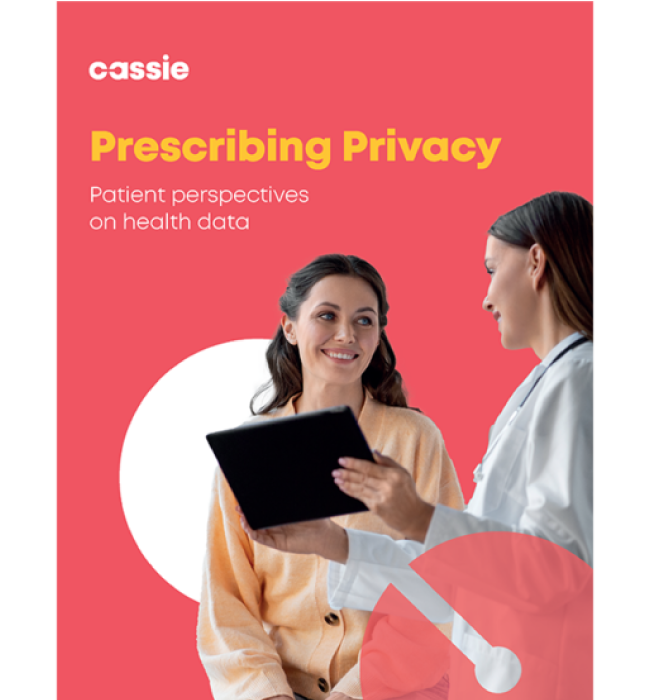5 challenges of collecting informed consent in healthcare
Posted: September 14, 2023
Obtaining informed consent from patients is intrinsic to the way healthcare providers and researchers practice medicine. It constitutes a crucial part of medicolegal responsibility to patients and to society.
Be it the beneficence principle, which requires healthcare providers to act in the best interests of patients, or the non-maleficence principle, which guides them to avoid harm, the concept of informed consent applies to both.
Patients’ thorough comprehension of the risks and benefits of interventions proposed by healthcare providers allows them to make decisions with maximum benefits and minimal harm.
According to legal and ethical standards, while healthcare providers get to obtain informed consent from patients, there are a hoard of hurdles in their way, challenging the collection of informed consent.
In this blog post, we address five such challenges that providers must be aware of and have the necessary settings in place to address effectively when it comes to managing consent.
Lack of health literacy
Evaluating the health literacy of patients is a stepping stone for ensuring they can comprehend and act upon health information. Health literacy determines an individual’s ability to obtain, understand, and utilize health information to make informed decisions.
A patient’s lack of health literacy can impede their ability to comprehend information about various treatment options. This may lead to a communication and educational gap between patient and provider. Not only the active participation of patients in discussions gets hindered, but collaborative decision-making that comes in only with the mutual understanding of patients and providers also gets impacted.
Despite the meaningful messages bestowed by the service provider, patients may not grasp the significance of the available choices and their potential outcomes. In this case, patients would rather rely on the trust of healthcare providers than truly understand the information presented. It may further lead to impaired decision-making capacity, as patients may not make informed choices that align with their values and preferences.
While there are numerous ways to evaluate the health literacy of patients, notable ones include:
- Asking open-ended questions
- Assessing comprehension of medication labels
- Considering cultural and language factors
- Assessing technology friendliness
- Using validated health literacy assessment tools
Language barriers
The ability of healthcare professionals to communicate effectively is critical to the quality of healthcare. Language barriers as a challenge to effective communication could prevent understanding of medical procedures. It thereby puts patients at risk of consenting to medical interventions without comprehension, further depriving them of their constitutional rights to information.
Especially in multilingual countries like the US and UK, where English is recognized as the main language to provide social services, including healthcare, language as a barrier is obvious to deal with. Patients with limited English proficiency (LEP) may have lower satisfaction with care. Their inability to fully understand the nature of their treatment, medical instructions, or labels leaves them often feeling frustrated and anxious and not receiving the same level of care as English-speaking patients.
Such poor experiences in healthcare can lead to misunderstandings (three times more than English-speaking patients), non-adherence to treatment regimes, and an impact on the collection of informed consent. Citing Title VI of the Civil Rights Act, the Office for Civil Rights within the U.S. Department of Health and Human Services (HHS) mandates healthcare providers to offer language assistance services, such as interpreters, to patients with limited English proficiency (LEP).
Consent in emergency situations
Consent in emergency situations becomes cumbersome to obtain. In situations that are critical by nature and require urgency, there may be little to no time for patients to engage in detailed discussions and make informed decisions.
Some common challenges associated with collecting consent in emergency situations are:
Documentation challenges
Documentation of the consent process is essential for many reasons:
- To avoid legal disputes
- To ensure transparency, accountability, and respect for patient autonomy
- To facilitate stakeholder access to a common, agreed-upon treatment plan; and
- To aid in delivering consistent treatment if patients receive care from different providers
In emergency situations, as priority is naturally given to providing immediate medical care, it may result in:
- Incomplete or delayed documentation of the consent process
- Providers having limited information about the patient’s medical history or preferences
- Providers having to rely on implied consent, assuming a reasonable person would consent to life-saving interventions
Limited information
In emergency situations, patients are often found in a state of trauma, unconsciousness, or unable to communicate.
Such situations can cause the following challenges:
- Providers may be unable to collect information about the patient’s preferences, values, and goals, which can pose significant challenges to the process of collecting informed consent
- If there is no sufficient record of a patient’s pre-existing conditions, allergies, and medications, providers won’t be able to make informed decisions about the course of action
- If providers lack an understanding of the circumstances that led to the emergency in the first place, they may not comprehend the overall situation. This lack of context may hinder the provider’s ability to communicate the risks and benefits of the treatment plans to the patient or their decision-maker
Informed consent in research
Clinical research is a vital contributor to medical knowledge. By analyzing patients’ data, researchers get to understand disease mechanisms, identify risk factors and predictive markers, and evaluate treatment efficacy and safety for improved disease diagnosis, prevention, and management.
In regards to respect for patient autonomy, informed consent from subjects must be obtained before enrolling their data as a part of clinical research. As providers pursue obtaining informed consent from patients, they face a range of roadblocks that hinder their ability to advance medical knowledge and innovation.
- Patients admitted to the ICU find it hard to provide informed consent for research. Their incapacity to make decisions for themselves, combined with surrogate decision-makers’ inability to make the same level of decisions as the patients would have made for themselves, accounts for another hurdle in the way of obtaining informed consent for research
- Some research studies need to be completed quickly in order to derive benefits for patients. As the traditional method of obtaining informed consent goes, it requires explaining the study’s purpose, risks, and benefits to patients, allowing ample time for comprehension and deliberation. However, in time-critical research, the urgency of the situation may compel researchers to either adopt deferred consent or waive consent
- In some cases, patients may misunderstand consent obtained for research as directly benefiting their treatment. The phenomenon called therapeutic misconception occurs when patients confuse their participation in research for a guaranteed cure or significant improvement in their condition. This lapse of distinction between treatment and research interventions leads them to make decisions that are not in their best interests
Evolving legal and ethical standards
Advancements in medical technology, supplemented by patients’ increased autonomy and evolving societal norms, require healthcare providers to adapt their informed consent collection practices from time to time. Regularly adapting consent practices ensures healthcare providers meet the highest ethical and legal standards.
Transcending traditional methods of disclosing risks, benefits, and alternatives for specific treatments to patients, an evolving approach to informed consent encompasses:
- Personalized considerations tailored to individual patients’ characteristics, preferences, and values
- Involvements of patients in treatment choices to make shared decision-making
- Appointment of surrogate decision-makers in cases where patients are not in capacity to make decisions
- Addressing data collection, usage, and sharing practices with patients, as well as the implementation of robust data privacy and security measures to ensure patient confidentiality
- Addressing therapeutic misconceptions with patients is necessary to ensure patients clearly understand the distinction between research and treatment
- Consideration of cultural background and communication preferences in a diverse society

Download our ‘Prescribing privacy’ research report
We spoke with US consumers to explore customer trust and the level of confidence that consumers have in the healthcare system’s ability to safeguard data.
This report also covers:
- How news-reported data breaches impact consumer emotions
- How they evaluate healthcare providers for data security
- Actions that healthcare providers can take to build customer trust whilst challenging the complexities of data privacy

